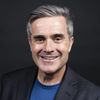Two recent stories regarding the arena and NBA and NHL teams haven’t passed the smell test.
Inside sports business
We’ve heard about “fake news” since last year’s presidential campaign, to the point where the expression has become vastly overused.
Nowadays, the term gets widely applied in internet arguments where somebody simply disagrees with someone else. But “fake news” is actually meant to describe false stories purposely put out to mislead readers.
That intent stuff is tough to prove. That said, there have been a couple of stories with regards to Seattle’s arena quest this past month or so that certainly qualify as “false news” even if we can’t prove them “fake” by strict definition.
Both stories — regarding the NBA and NHL — gained national attention. But their factual foundations fell apart under cursory questioning.
Most Read Sports Stories
The first involved a sports website called 16 Wins A Ring, which published a Jan. 16 story claiming NBA brass was coming to Seattle that week to visit city officials. The story also said NBA commissioner Adam Silver was frustrated by Mayor Ed Murray ducking his calls.
Turns out NBA executives never came to Seattle. And not only was Murray taking Silver’s calls, he was planning a new one with Silver that’s since been held.
Beyond Seattle, the story’s claim that a meeting was taking place the following day between the NBA and Louisville city officials was also denied by all.
The central thrust to the story was that the NBA was poised to announce expansion plans — with Seattle and Mexico City named by the website as supposed front-runners with Louisville close behind. Never mind that Silver, Dallas Mavericks owner Mark Cuban and all types of people working within the NBA insist expansion isn’t even being discussed internally.
Even as the story was being widely denounced, 16 Wins A Ring stood by its expansion premise and supposed sources. Which is where things got really interesting.
A few days later, a Louisville Metro Councilman named Dan Johnson forwarded a motion in city hall to support bringing professional basketball to that city. The motion, citing an anonymous source, said that the NBA “has indicated they are prepared to proceed with expansion teams.”
Which, of course, 16 Wins A Ring promptly jumped on, citing it as proof its original story had been correct.
Ah, not so fast.
Since the league continued to deny it was discussing expansion, other Louisville council members and even a group pushing for the NBA to come to that city threatened to pull support for Johnson’s measure unless he revealed his anonymous source.
Johnson finally admitted his source on NBA expansion had been 16 Wins A Ring, the website that created all the fuss in the first place. So, you had this circular support thing going on where the website claimed Johnson’s measure validated its reporting while it turns out the very wording in that measure was based off a 16 Wins A Ring story everybody claims is false.
But is it “fake news?” Was it put out to benefit somebody?
Sure, some groups would benefit by promoting the idea the NBA is about to expand. It might help Sodo District arena proponent Chris Hansen get his project greenlighted here much quicker.
But even Hansen now admits the NHL could come here before the NBA.
It’s more likely pro-basketball supporters in Louisville, who would benefit more from city leaders there being prodded into action by the idea the NBA is expanding.
Or, maybe it was all just a bad game of really broken telephone.
A few weeks later, more false news went national when a Glendale Star story Feb. 7 stated that an Arizona Coyotes representative had toured KeyArena along with other prospective developers and owners.
That set off some hysteria in Seattle, but far more in the Phoenix area, where the Coyotes claim they are committed to staying if they get a new venue apart from their current Glendale digs. The story’s timing was suspect, breaking just days after a new arena deal for the Coyotes in Tempe, Ariz., fell apart when Arizona State University pulled out.
The only organized KeyArena tour for prospective developers and owners took place more than a week before the Tempe deal’s surprise collapse. The paper’s story failed to explain why the Coyotes would scout KeyArena when team owners still thought they had a Tempe arena deal.
Not only that, but City of Seattle officials made everybody taking the KeyArena tour sign in at the door without exception. No Coyotes representatives were found on the list.
The story quoted a male “spokesperson” for KeyArena without naming him. The only authorized KeyArena spokesperson is female.
Everybody involved, from the Coyotes, to the City of Seattle, to the prospective renovation bid groups, denies anyone from the team participated in the tour. The reporter insists his source is reliable, but when you base sensitive stories on anonymous tips you’d better hope they hold up to scrutiny.
Who benefits from folks thinking the Coyotes were here?
In Seattle, perhaps KeyArena renovation groups wanting people to believe NHL owners are interested in the venue. Maybe Hansen, wanting people to believe the Coyotes were exploring KeyArena as a temporary site while Sodo arena is built.
More realistically, the bigger gains would be for pro-Coyotes people in Arizona trying to leverage a funding deal from politicians under threat of leaving the state. Or, maybe Glendale city officials would benefit by making the squad look like it’s about to bolt town so nobody else in the region would stake them and they’d have to stay put.
Either way, the Seattle arena saga has experienced enough twists and turns without injecting make-believe hype into the mix. There are many agendas out there that don’t even directly involve our city, so just remember: If it sounds too good to be true, try smelling it first.
